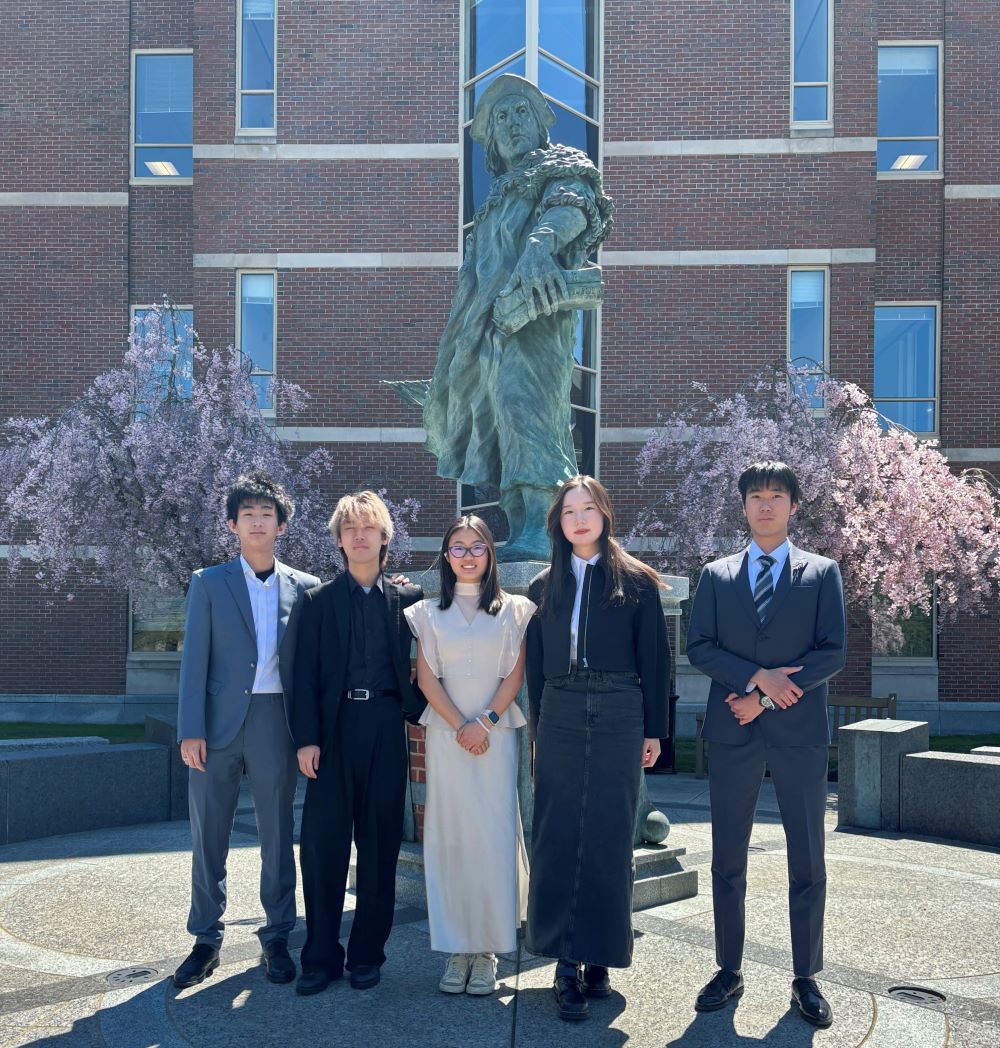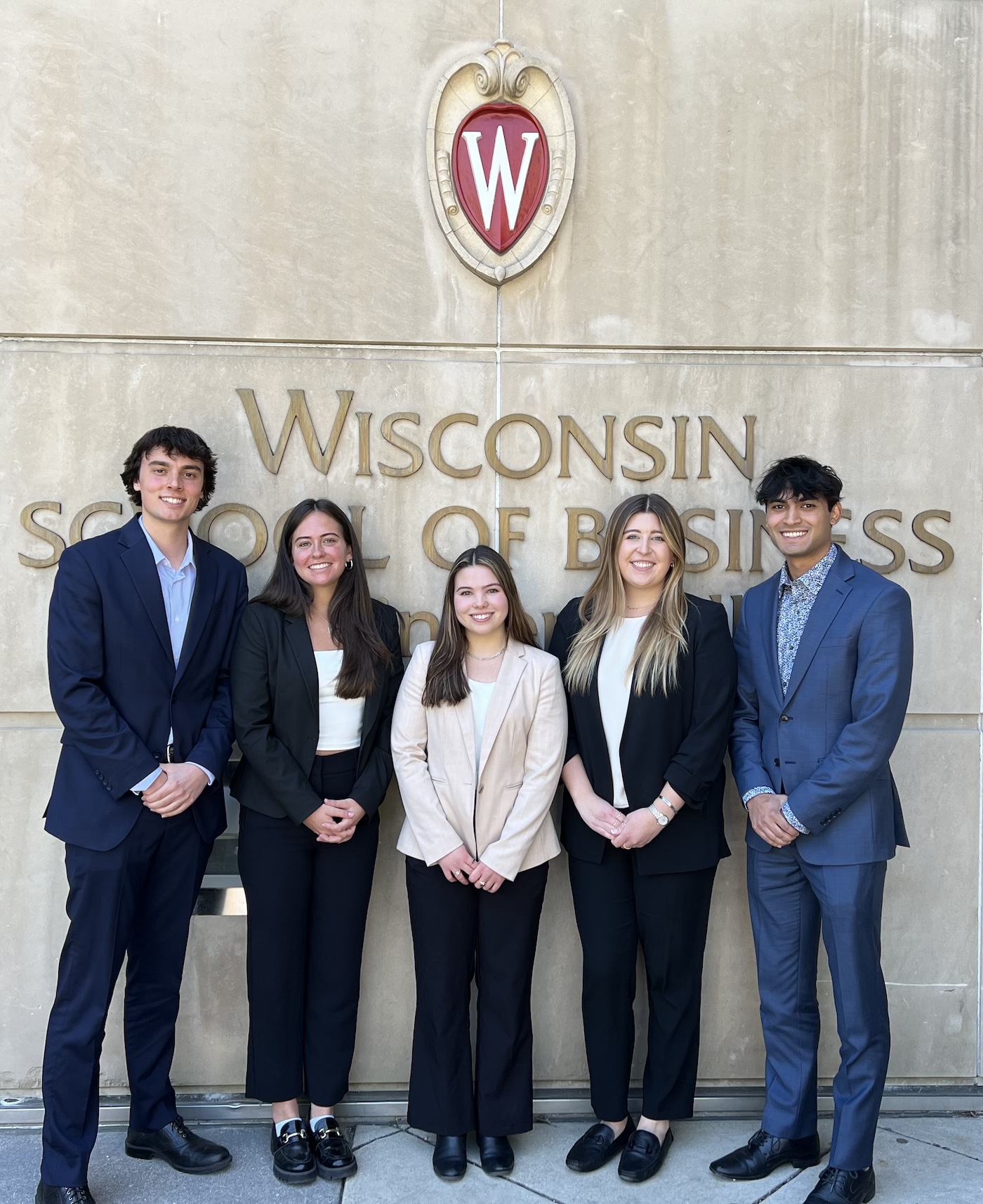At this year’s annual Corcoran Case Competition, students were tasked with proposing affordable housing solutions for homeless veterans, which is “one of the most pressing issues in our country right now,” according to Taylor Perkins, associate director of the Joseph E. Corcoran Center for Real Estate and Urban Action.
Since 2018, the Corcoran Center has hosted the affordable housing-focused case competition, giving undergraduate students the opportunity to learn from experts in the field and work through the development process of real-world projects. This year, more than 300 students from 46 schools participated in the all-virtual competition, which Corcoran organizes in partnership with Capital One, and with further support from Citizens Bank and Redstone Equity Partners.
.jpg)
Veterans Affairs campus in Los Angeles
The competing students came up with a variety of plans to turn an underutilized building on a Veterans Affairs campus in Los Angeles into affordable housing units for the more than 4,000 unhoused veterans in the area. Acting as development firms, participating teams considered legal and financial factors, the needs of future occupants, and the development’s impact on the surrounding community. The case prompt also tasked students with finding unique ways to include accessible resources and amenities, like legal services, counseling, social spaces, and suit closets for job interviews; the idea was to create a sense of community and help the veterans overcome barriers to leading stable and productive lives.

Weiya Wang, MCAS '27, Brian Yeung, MCAS '27, Fengkai Dong '27, Yiyao Huang, MCAS '27, and Jiwon Kim, MCAS '27, of Boston College's City Lighters team
Ahead of the first round of competition, the Corcoran Center held virtual workshops to teach students the relevant context and expertise needed to complete the case. Brett Simms, executive director of asset management within the US Department of Veterans Affairs, led students through the history of the project site, along with Brian D'Andrea, MCAS '98, senior vice president of affordable housing corporation Century Housing. During the second workshop, experts on affordable housing financing at the Capital One community finance team prompted students to think about what could make their proposal unique.
“What benefit is your project providing to the community?” asked Dan Miller, the director of community finance for Capital One. “Pairing your proposal with what is going on in the community and what the community’s needs are is really important.”
Sixty-five teams from schools across the country enrolled in the competition, and 22 of them wound up submitting proposals, which included a written executive summary, slide deck presentation, and a financial model. Four teams—Boston College, University of Wisconsin-Madison, Florida State University, and Roger Williams University—advanced to the final round, which was held in April. Each finalist team had 15 minutes to present, followed by up to 15 minutes of Q&A with the panel of judges.

First place team Logikon Capital from the University of Wisconsin-Madison
Throughout their presentations each team emphasized what made their proposals special. “Compass Development” from Roger Williams University geared their project toward fostering a peaceful environment by including a therapeutic garden and horticulture installations, while “City Lighters” from Boston College emphasized the importance of community spaces where student organizations from UCLA, the neighboring college campus, could interact with veterans.
The panel of four judges included Amy Walsh Farrell (Citizens Bank), Laurie Goodman (the Urban Institute), Aiza Galdo (Capital One), and Stephen Peck (U.S. VETS, a nonprofit providing housing, counseling, career development, and comprehensive support to veterans). At the end of the competition, the judges awarded University of Wisconsin-Madison’s “Logikon Capital” the first place prize of $5,000. Their proposed development was named “The Phoenix” to “represent the resiliency of the veterans who will live there,” explained team members. Boston College came in second place, winning $3,500, and Florida State University took home $1,500 for their third place finish.
Among other schools participating were teams from Howard University, The University of North Carolina at Chapel Hill, Vanderbilt, Villanova, Williams College, Loyola University Chicago, and the University of Michigan.
Over the past six years, the Corcoran Case Competition has evolved from a campus event to a national competition involving students from many of the top university real estate programs in the United States. "It's the only one of its kind in the country, the only undergraduate case competition focused on affordable housing," said Neil McCullagh, Corcoran's executive director.
He added that, with growing participation by first-generation students and people of color, the competition is also helping the real estate industry broaden its representation as it begins to grapple with "one of the most challenging issues of our day," the need for affordable housing.





